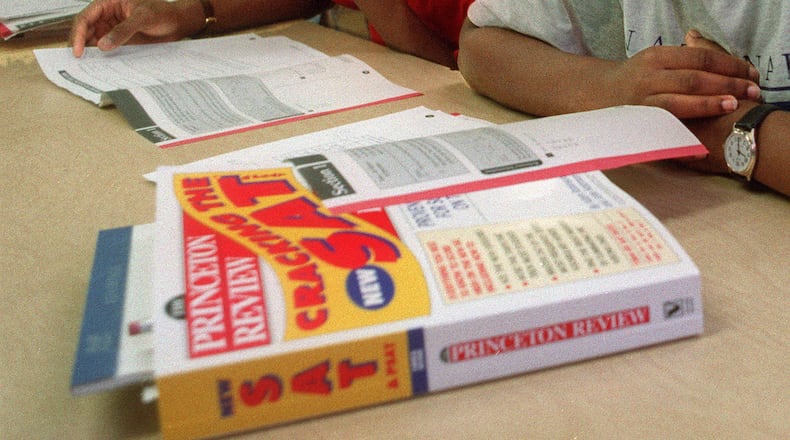In preparation for applying to colleges this fall, my 17-year-old twins just took the June SAT and ACT. So, I was interested in today's release of a National Association for College Admissions Counseling survey of 400 member campuses. The survey asked how often colleges validate the usefulness of these standardized entrance exams.
The survey found only 51 percent of the colleges conduct predictive validity studies to discover whether the tests tell them anything helpful. Yet, nearly 8 out of 10 colleges require either the ACT or SAT.
Among that 51 percent, 59 percent conduct validity studies annually; 24 percent every other year. Colleges have their own study protocols for gauging whether SAT or ACT scores mean anything.
"Some admissions offices continue to require the ACT and SAT out of habit. Others believe the tests convey 'prestige.' As NACAC shows, many of these institutions lack current evidence that the scores accurately forecast academic outcomes," said FairTest Public Education Director Bob Schaeffer in a statement.
So, what do colleges believe is the most reliable determinant of how well students will fare on their campuses? "Overall, it is clear that high school grades are by far the most significant predictor of college academic achievement," states the report.
Some other key findings in the survey:
- Slightly more than half of responding institutions believed that test scores as admission criteria were considerably important. Public institutions were more likely to rank test scores as "considerably important," as were institutions with larger enrollment.
- The variable that generally reflects the strongest correlation with college academic achievement is the high school GPA, and almost all of the colleges interviewed used some form of it as a variable in their validity studies. In general, admission offices or researchers recalculate the averages of incoming students so they are all in the same format, usually on a 0-4.0 scale.
- Rank in class offers the apparent advantage of compensating for the difference in grading curves among secondary schools. Class rank remains in fairly common use as an admission criterion, although it has become increasingly less important over the past two decades. Only two of the 11 institutions interviewed in-depth as part of the NACAC report made use of class rank in admission decisions, and in one case only as a component of the overall academic rating.
- While admission offices maintain a common protocol for the evaluation of any application, there are a variety of applicant cohorts that receive additional attention and may in some cases be admitted with a lower academic threshold than the pool as a whole. There are a wide variety of these groups: alumni children, students who live further away from campus, international students, students representing ethnic or racial diversity, first-generation college students, students of one gender or the other, recruited athletes, students applying early decision and more.
- Many institutions either use a rating for high school extracurricular involvement in their admission process, or subsume it within a broader "personal qualities" rating. Several institutions investigated the relationship of extracurricular activities to college academic achievement. One college found no correlation on a broad basis, but that some of these students did less well than predicted. Another college found a small positive correlation between the extracurricular rating and college grades.
In 2009, I interviewed the authors of " Crossing the Finish Line : Completing College at America's Public Universities." In sifting through data from 200,000 students at 68 colleges, the researchers found students with exemplary grades from weak high schools still graduate at a high rate from college. Their conclusion: Those impressive report cards, regardless of the high school that issued them, are the most powerful predictor of college completion rates.
About the Author
Keep Reading
The Latest
Featured




